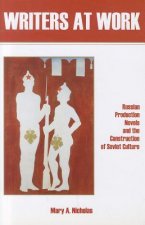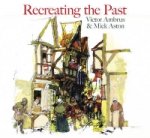
Kód: 04723254
Unwelcome Americans
Autor Ruth Wallis Herndon
Selected by Choice magazine as an Outstanding Academic Title for 2001 In eighteenth-century America, no centralized system of welfare existed to assist people who found themselves without food, medical care, or shelter. Any poor ... celý popis
- Jazyk:
 Angličtina
Angličtina - Vazba: Brožovaná
- Počet stran: 264
Nakladatelství: University of Pennsylvania Press, 2000
- Více informací o knize

Mohlo by se vám také líbit
-

Seasons of Connecticut
606 Kč -

Talking with Television
3630 Kč -

Rise of Mass Literacy - Readings and Writing in Modern Europe
1137 Kč -

Talmud of Babylonia XVI
5170 Kč -

Writers at Work
4129 Kč -

Proceedings of the 27th Conference of Spacecraft TT&C Technology in China
6578 Kč -

Joe's Luck Always Wide Awake
673 Kč
Darujte tuto knihu ještě dnes
- Objednejte knihu a zvolte Zaslat jako dárek.
- Obratem obdržíte darovací poukaz na knihu, který můžete ihned předat obdarovanému.
- Knihu zašleme na adresu obdarovaného, o nic se nestaráte.
Více informací o knize Unwelcome Americans
Nákupem získáte 83 bodů
 Anotace knihy
Anotace knihy
Selected by Choice magazine as an Outstanding Academic Title for 2001 In eighteenth-century America, no centralized system of welfare existed to assist people who found themselves without food, medical care, or shelter. Any poor relief available was provided through local taxes, and these funds were quickly exhausted. By the end of the century, state and national taxes levied to help pay for the Revolutionary War further strained municipal budgets. In order to control homelessness, vagrancy, and poverty, New England towns relied heavily on the "warning out" system inherited from English law. This was a process in which community leaders determined the legitimate hometown of unwanted persons or families in order to force them to leave, ostensibly to return to where they could receive care. The warning-out system alleviated the expense and responsibility for the general welfare of the poor in any community, and placed the burden on each town to look after its own. But homelessness and poverty were problems as onerous in early America as they are today, and the system of warning out did little to address the fundamental causes of social disorder. Ultimately the warning-out system gave way to the establishment of general poorhouses and other charities. But the documents that recorded details about the lives of those who were warned out provide an extraordinary-and until now forgotten-history of people on the margin. Unwelcome Americans puts a human face on poverty in early America by recovering the stories of forty New Englanders who were forced to leave various communities in Rhode Island. Rhode Island towns kept better and more complete warning-out records than other areas in New England, and because the official records include those who had migrated to Rhode Island from other places, these documents can be relied upon to describe the experiences of poor people across the region. The stories are organized from birth to death, beginning with the lives of poor children and young adults, followed by families and single adults, and ending with the testimonies of the elderly and dying. Through meticulous research of historical records, Herndon has managed to recover voices that have not been heard for more than two hundred years, in the process painting a dramatically different picture of family and community life in early New England. These life stories tell us that those who were warned out were predominantly unmarried women with or without children, Native Americans, African Americans, and destitute families. Through this remarkable reconstruction, Herndon provides a corrective to the narratives of the privileged that have dominated the conversation in this crucial period of American history, and the lives she chronicles give greater depth and a richer dimension to our understanding of the growth of American social responsibility.
 Parametry knihy
Parametry knihy
Zařazení knihy Knihy v angličtině Humanities History Regional & national history
832 Kč
- Plný název: Unwelcome Americans
- Autor: Ruth Wallis Herndon
- Jazyk:
 Angličtina
Angličtina - Vazba: Brožovaná
- Počet stran: 264
- EAN: 9780812217650
- ISBN: 0812217659
- ID: 04723254
- Nakladatelství: University of Pennsylvania Press
- Hmotnost: 408 g
- Rozměry: 229 × 153 × 19 mm
- Datum vydání: 31. December 2000
Oblíbené z jiného soudku
-

Hundred Years' War on Palestine
338 Kč -

Ten Myths About Israel
335 Kč -

Diana: Her True Story - In Her Own Words
303 Kč -

Dictatorland
316 Kč -

Anatomy of the Nuremberg Trials
412 Kč -

Line in the Sand
265 Kč -

Conquest of New Spain
357 Kč -

History of Venice
464 Kč -

Pity of War
517 Kč -

We Were Soldiers Once...And Young
303 Kč -

Palestinian-Israeli Conflict: A Very Short Introduction
312 Kč -

Cuneiform
276 Kč -

Slightly Out of Focus
362 Kč -

Great War for Civilisation
545 Kč -

Great Siege, Malta 1565
449 Kč -

Imperial Japanese Naval Aviator 1937-45
580 Kč -

Flame Trees Of Thika
303 Kč -

Battle of Britain
410 Kč -

Fortress Third Reich
654 Kč -

Bismarck and the Development of Germany
2473 Kč -

Arthur and the Anglo-Saxon Wars
442 Kč -

Drawing on Archaeology
602 Kč -

Brief History of the Hundred Years War
303 Kč -

British Culture
1850 Kč -

Life of Anne Boleyn Colouring Book
268 Kč -

Recreating the Past
488 Kč -

Setting the Desert on Fire
403 Kč -

Fortress France
580 Kč -

History of Siam
993 Kč -

Oxford History of the Biblical World
470 Kč -

British Destroyers 1939-45
357 Kč -

P-40 Warhawk Aces of the MTO
684 Kč -

Ethnic Cleansing of Palestine
357 Kč -

Decline and Fall of the Roman Empire
130 Kč -

Strange Death of Europe
401 Kč -

The Balkans, 1804-2012
543 Kč -

Empress of the East
357 Kč -

Palestine
545 Kč -

The Secret Diaries Of Miss Anne Lister: Vol. 1
304 Kč -

Giza Power Plant
365 Kč -

Rise And Fall Of The Third Reich
543 Kč -

Citizens
543 Kč -

Millennium
368 Kč -

Alexiad
423 Kč -

Maurice's Strategikon
736 Kč -

Voynich Manuscript
990 Kč -

Last Voyage of the Lusitania
487 Kč -

1948
631 Kč -

Annals of Imperial Rome
357 Kč
Osobní odběr Praha, Brno a 12903 dalších
Copyright ©2008-24 nejlevnejsi-knihy.cz Všechna práva vyhrazenaSoukromíCookies



 Vrácení do měsíce
Vrácení do měsíce 571 999 099 (8-15.30h)
571 999 099 (8-15.30h)